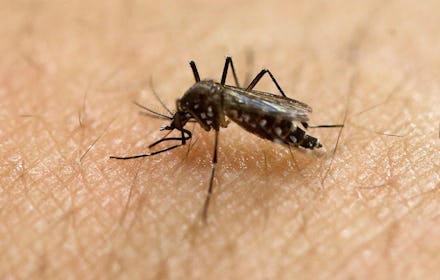Zika virus could be more harmful than we thought

New preliminary research suggests it's possible Zika could harm adult brains too.
The Zika virus has spread across Central America and South America, including Brazil where the 2016 Olympics are taking place. The virus is particularly dangerous in pregnant women because it can cause brain damage in infants developing in the womb. Zika can cause a condition called microcephaly, where a baby is born with a smaller head, and sometimes an underdeveloped brain, according to the Centers for Disease Control and Prevention.
Now new research published in the journal Cell Stem Cell has shown it can kill and stunt the growth of brain cells in adult mice.
Zika mysteries
Most adults who contract Zika report mild symptoms like headache and fever, or no symptoms at all. However, in rare cases the virus has been linked to the neurological disorder Guillain-Barré syndrome: the immune system attacks the peripheral nervous system, which can cause muscle weakness and even paralysis, according to the National Institute of Neurological Disorders and Stroke.
Researchers think Zika targets developing brain cells in infants. But people continue to generate new neurons in parts of the brain well into adulthood, so it's possible Zika could attack that process in adults, according to the new research.
It's important to note this study was only conducted on animals. Viruses affect animals differently than humans, so we can't draw many conclusions from it yet. The mice also had their immune systems weakened first to make them more susceptible to Zika. We'll need a lot more research to see if there's a link between Zika and damage to adult brains.
"Whether there are long-term effects of [Zika] on adult neurogenesis or cognition in rodents or humans will be an important question for the future," the researchers conclude in the study.